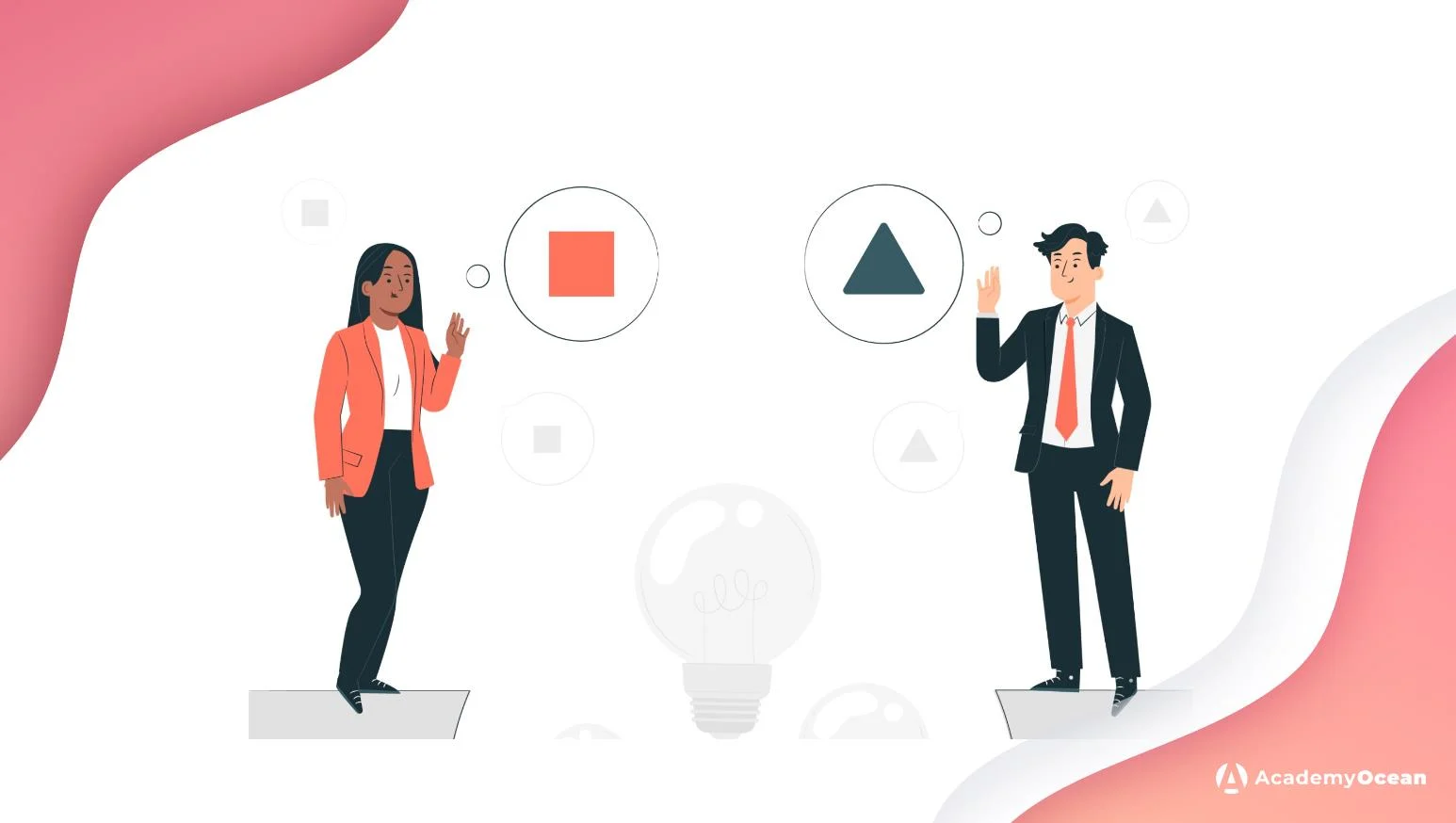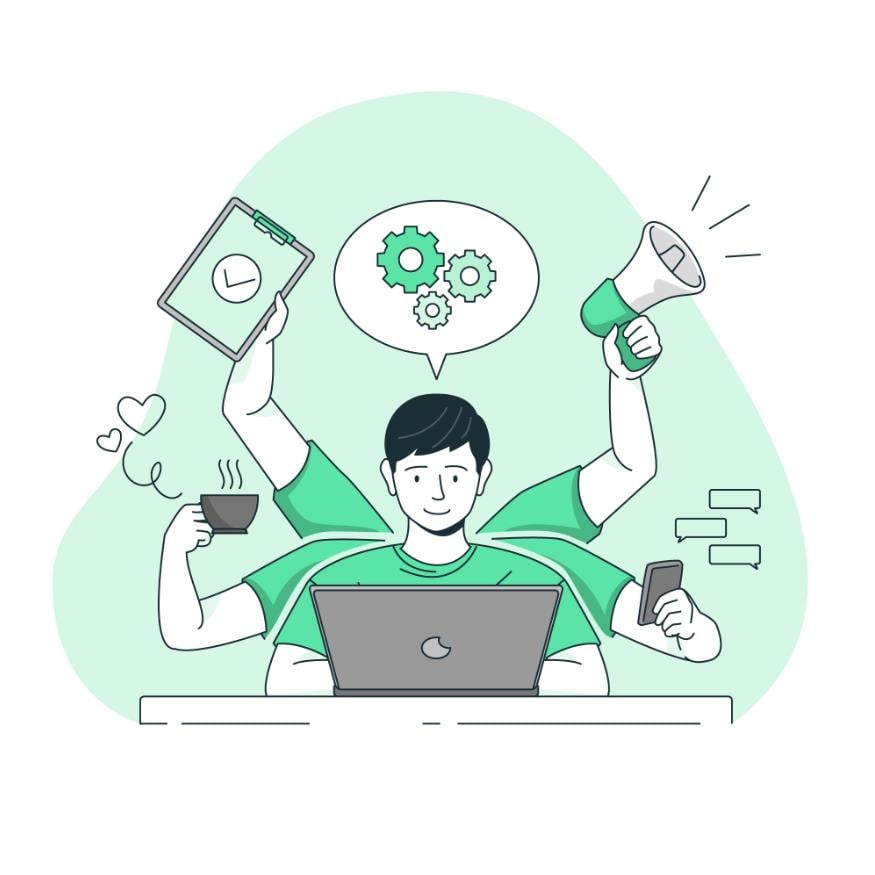Knowledge vs Skill: Understanding the Key Differences and their Impact on Personal Growth and Professional Development

What is the difference between knowledge and skills?
Getting a more detailed breakdown
Relationship between Knowledge and Skill
Practical examples of knowledge vs skills
Exploring Skills
Frequently Asked Questions About Knowledge vs Skills

What is the difference between knowledge and skills?
Let's start small to avoid overcoming you, the baseline is that knowledge is theoretical understanding of facts, concepts, and information. That's something one knows is there, but cannot touch with their hands.
On the other hand, skills are the practical abilities that allow us to apply the gained knowledge effectively. It's something you do with your hands, on your computer or just with mechanisms and so on.
So, is knowledge a skill? No, those are different consepts. The key takeaway here is that knowing doesn't mean being able to apply or use in the real life, as using knowledge in practice requires skills.
The key distinction:
Knowledge: Theoretical information, mostly gained from experience and learning
Skills: Practical abilities that, in the majority of cases, gained through practice
Relationship: Treat knowledge as the foundation and skills as the building above the foundation
Getting a more detailed breakdown
Knowledge:
Definition: Understanding of facts, concepts, and information
Acquisition: Through education, reading and training
Focus: Theoretical understanding and memorization
Examples: Knowing grammar rules, understanding physics principles, financial concepts
Transferable: Widely used across variable aspects
Skills:
Definition: Abilities to perform tasks or actions effectively
Acquisition: Through practice, training, and applying knowledge
Focus: Practical application and execution of knowledge
Examples: Writing proficiently, solving complex problems, managing teams
Action-oriented: Involves real-world performance and measurable results

Relationship between Knowledge and Skill
Recently, we have already established that knowledge is the foundation. This basic layer provides understanding of what and why, At the same time, skills are all about how — the ability to use the knowledge in real world tasks.
They work as a system, and none negates the need for the other. Understanding skills is a must as they cannot be acquired without knowledge. In turn, knowing something is totally useless if one doesn't know how to apply it. Therefore, booth are essential for success in personal and professional development.
Here's how they work together:
Foundation and Application:
Knowledge provides context: Understanding principles, theories, and facts
Skills enable execution: Real world tasks require skills
Combined impact: Knowledge + Skills = Competency and expertise
Development Process:
Knowledge development: Study → Understanding → Retention → Comprehension
Skill development: Practice → Experience → Proficiency → Mastery
Integration: Theoretical knowledge + Practical application = Professional competence

Practical examples of knowledge vs skills
Software Development:
Knowledge: Learning and understanding programming languages, algorithms, comprehending software architecture principles
Skills: Writing clean code, debugging, building fully functional software systems
Business Management:
Knowledge: Leadership theories, financial principles, understanding market analysis concepts
Skills: Ensuring team motivation, budget planning, strategic decision-making, conflict resolution
Teaching and Education:
Knowledge: Subject matter expertise, learning theories, curriculum standards
Skills: Classroom management, lesson delivery, student assessment, communication
Types of Knowledge
Declarative Knowledge:
What it is: It is all about factual information and specific details about the world
Characteristics: It is about you knowing that something exists and even the ability to describe it
Examples: Earth revolves around the Sun, water formula is H2O, square root of 64 is 8
Purpose: Provides the basic foundation for understanding and decision-making. Since, knowledge is understanding gained through learning.
Procedural Knowledge:
What it is: Grants an understanding of how to perform certain actions or tasks
Characteristics: "Knowing how" to do something
Examples: Riding a bicycle, writing code, playing musical instruments
Purpose: The foundation of getting skills to start utilizing knowledge in practice.
Conceptual Knowledge:
What it is: This one is all about being able to understand relationships, patterns, and underlying principles
Characteristics: "Knowing why" things work and understanding how different concepts are connected forming a complex knowledge
Examples: Understanding cause-and-effect in various industries
Purpose: Critical thinking and complex problem-solving

Exploring Skills
As much as skills seem to be simple — being just an ability to perform some actions to get expected results, things also get more complicated the deeper you dive. Therefore, it's not surprising that skills also divide into several categories at which we are going to take a closer look now
Cognitive Skills:
Definition: This type is all about mental abilities. It focuses on all about thinking, reasoning, and information processing
Examples: Problem-solving, critical thinking, reasoning and decision-making
Application: This type is great for analyzing complex situations, developing solutions and making strategic choices
Motor Skills:
Definition: This one is all about coordination and phisical abilities to controll the body and movement
Examples: Playing instruments, performing surgery, athletic performance, craftsmanship
Application: In this case, anything that requires phisical activitiy, from precise hand movements up to full body performance in sports

Interpersonal Skills:
Definition: This types focuses on everyong about the capabilities to communicated and collaborate with other people
Examples: Active listening, empathy, conflict resolution, team leadership
Application: Arguably, these are the most important skills for people. Building relationships, managing teams and handling negotiations is universal and applicable to every industry
Technical Skills:
Definition: Specialized abilities related to very narrow fields of human activity. Usually, those are requirements for most-highly paid positions and offers.
Examples: Software programming, data analysis, equipment operation, digital marketing
Application: Industry-specific tasks most frequently connected with the latest and most advanced technologies.

Frequently Asked Questions About Knowledge vs Skills
Can you have skills without knowledge?
One can relatively easily get most basic skills even without knowledge. However, more advanced skills require getting knowledge beforehand. Let's take driving as an example. It is possible to learn driving by practice. However, being able to drive a car is not the same as understanding the traffic rules. So, skill and knowledge and really closely related, but also very different.
What comes first — knowledge or skills?
Knowledge typically provides the foundation for building skills on top of it. But the interesting fact is that you develop both practically at the same time. But this works only until a certain threshold. When reaching it, you will need basic knowledge to start practicing skills, and practicing skills deepens your knowledge through experience.
Is understanding a skill or knowledge?
In short, understanding can be both. As knowledge, it's comprehension of information. In turn, a skill, it's the ability to apply that comprehension practically in different contexts and situations. Thus, understanding is both about what it is and knowing how to do it.
How do you develop knowledge vs skills?
Knowledge develops through education, reading, training, and study. Skills develop through practice, hands-on experience, repetition, and real-world application of knowledge. At the same time, practice also adds a bit of knowledge. Yet, one needs to be really careful as in certain fields, trying to obtain skills without proper knowledge can be really dangerous.
Which is more important - knowledge or skills?
Both are essential and complementary. Knowledge without skills remains theoretical, while skills without knowledge lack depth and adaptability. Needless to say, that it's impossible to obtain some skills without knowledge. So, instead of deciding which one is more important — spend time on advancing both.